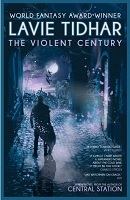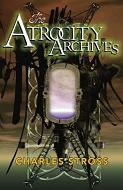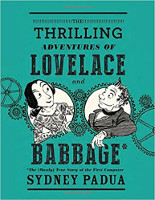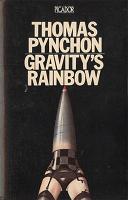 This is not a new book, and it’s not telling us anything new. But hang on, let me expand on this - The Violent Century was originally published in 2013, re-published in 2015, and now again in 2019 (with a great new cover by Sarah Anne Langton, who already graced other books of Lavie’s). And not telling us anything new - well, it’s set against the History of the 20th century (thus the very apt title, as also used by other writers), as we know it. The addition of actors with unusual abilities, of superheroes, changes a lot of local details in WW2, the Cold War,and any number of conflicts in-between that the Brits and other powers were involved in - and doesn’t change the course of history at all as the story winds its way through and around it.
This is not a new book, and it’s not telling us anything new. But hang on, let me expand on this - The Violent Century was originally published in 2013, re-published in 2015, and now again in 2019 (with a great new cover by Sarah Anne Langton, who already graced other books of Lavie’s). And not telling us anything new - well, it’s set against the History of the 20th century (thus the very apt title, as also used by other writers), as we know it. The addition of actors with unusual abilities, of superheroes, changes a lot of local details in WW2, the Cold War,and any number of conflicts in-between that the Brits and other powers were involved in - and doesn’t change the course of history at all as the story winds its way through and around it.
Lavie Tidhar is an Israeli-born writer, who has spent long periods of time in South Africa, Laos, and Vanatu, and who is now living in London. He writes across genre boundaries, and is the author of the World Fantasy Award–winning novel Osama, of the Jerwood Fiction Uncovered Prize-winning A Man Lies Dreaming, and the Campbell Award-winning Central Station, in addition to a number of other books and many short stories.
The story kicks off with Oblivion, a British Superhero (so we learn) picking up his former Sidekick/Partner, Fogg, to bring him in for a final - well, neither of them really knows. A discussion with their CO/Handler at the Retirement Bureau (some kind of MI6, but staffed with superheroes as key assets) in their top-secret headquarters below Pall Mall. Or, maybe rather an interrogation, given the arrangements, and the questioning of Fogg by the Old Man? He definitely wants to know something from the final days of WW2 which was not part of the official debriefing…
There definitely is a distinct imbalance here, between the Old Man who has too much weight and power, too much knowledge, and we don’t know where from. Everybody else is just a foot soldier, even if some (like Fogg) developed a life of their own over time. And loyalty, to one’s country, one’s kind, and oneself is a recurring theme at the core of these discussions and recollections.
The story itself is told as a series of loosely connected flash-backs, outlining the story of how these superheroes came to be (they themselves prefer the German-based term Ubermenschen!), how they were brought together, evaluated, trained, and then sent into battle for Great Britain, both overt and covertly.
All of this we see through Fogg’s eyes, and decidedly in a choppy and non-linear, non-chronological manner. But I’m sure the average reader won’t have a problem piecing together the story as it bounces between time lines, mixing different background stories, in pursuit of a thread, a development arc (plus the chapters start with a number, location, and a date, which should help if one gets lost). The way it is told is, I presume, done so to make specific points about what being such a super-human being with special abilities, sent out to serve his/her homeland does to the protagonists. We see how they don’t age, but still are being changed by what they experience; they get killed, or kill themselves (or get so jaded that they let themselves be killed), so there are fewer and fewer as time progresses.
We learn about how these changes originate in an experiment by the German Dr. Vomacht, which sent out a so-called Vomacht Wave, a singular event, which changed a number of humans when it passed through them (all countries and powers have their own superheroes, which is one of the reasons why these, despite their abilities, don’t change the course of history as we know it, as for example Dr Manhattan does in Watchmen).
What I found interesting how different the superheroes from the different powers are, are treated, or present themselves - from the near-invisible, secret service approach (Fogg’s skill is hiding himself in some kind of fog) to the brash, technicolor, TV-fodder US heroes, the morose Russian ones (Rusalka’s story is, to no-ones’ surprise, a tragic one) etc.
The battles these superheroes fight, especially between themselves, are brief and only sketched out, the book is much more interested in character development, and a dominant focus on the why - which makes for a rather striking difference to the current slew of Superhero films!
I found that, for me, the entire story was suffused in sadness, in an inevitability, of how the accidental beginning gives way to an inevitable end, even for the non-aging Ubermenschen. Like the Vomacht Wave wound a clockwork, which is now slowly winding down, erasing the changes made.
Given its topic this story owes to others, if sometimes only in references or similarities; Charles Stross’ The Annihilation Score is an obvious comparison (Superheroes, UK Secret Agency, Shell Games…) but as clearly not an influence given the publication timelines; Watchmen is the obvious work casting a huge shadow over any story written in this space (and the mood is comparable); although the powers the heroes have occasionally took me back to the ultimate treatment in exposing how silly these get very quickly, ie Dial H for Hero.
But overall this made for rather heavier reading than I originally expected; this is not a Caped Hero Caper, but deals with much more complex characters, telling a much more personal story.
Who should read this? Anyone interested in Superheroes beyond the cliche that Hollywood is frequently guilty of exploiting; anyone with an interest in what exposure to conflict does to people, and anyone who enjoys a well-crafted, complex story set in our rather violent history!
More Lavie Tidhar
Thanks to the publisher for the review copy.
Title: The Violent Century
Author: Lavie Tidhar
Reviewer: Markus
Reviewer URL: http://thierstein.net
Publisher: Tachyon
Publisher URL: http://www.tachyonpublications.com
Publication Date: 2013 (2019 repub)
Review Date: 191031
ISBN:9781616963170
Pages: 272
Format: ePub
Topic: Superheroes
Topic: Conflict













